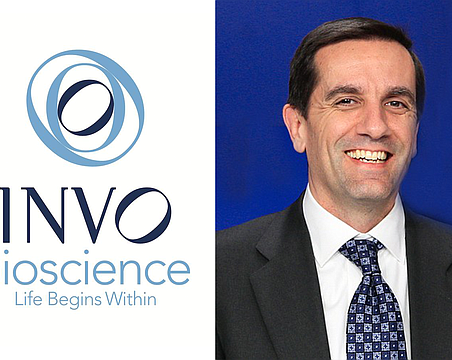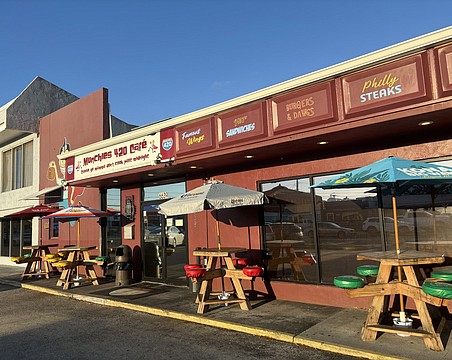Paperless Highway
Forget couriers and rushed trips to the federal courthouse to meet a deadline. The Middle District of Florida will soon go live.
By David R. Corder
Associate Editor
Changes taking place in federal court will soon revolutionize the way attorneys practice law, says U.S. District Judge Elizabeth A. Kovachevich.
"I'm the worst techie in the world, but I know we have to go this way," Kovachevich says of the court's transition to the "paperless highway." Beginning July 12, lawyers will be required to file motions and exhibits via the Internet.
Not all attorneys with a federal practice realize just how soon the conversion is occurring, says Chris Knopik, past president of the Federal Bar Association's Tampa Bay chapter.
"There are going to be a number of people who wake up one day and will be very surprised when their runner or staff heads over to the court with written memorandum that the court doesn't take anymore," says Knopik, 45, of Tampa's Knopik Varner Moore PA. "There are those who think it is going to happen three or four years from now."
One caveat
But even after the July deadline, says U.S. District Judge Susan Bucklew, attorneys still will file civil complaints at the court clerk's office on a compact disc in portable file format (PDF), a technical standard created by Adobe Systems Inc. and executed through its Acrobat writing software. Bucklew heads the steering committee that oversees the Middle District's transition to a paperless filing system
The district will not initially accept complaints across the Internet primarily because of billing issues. "We just won't have the credit card capabilities set up by July 12," Bucklew says. Eventually the court will demand that complaints be filed electronically, too.
Once the court clerks receive the complaint on a CD, however, the court will require attorneys and opposing counsel to file electronically all other documents via the Internet. That will include civil and criminal summons, motions, briefs, exhibits, attachments and so on. Those procedures, however, do not apply to pro se litigants.
"Other than the initial complaint, it's just a complete new way of looking at filing," Bucklew says. "But there are so many advantages for attorneys. They can now file 24 hours a day, seven days a week."
Kovachevich, chief judge from 1996 to 2003, says the court reluctantly is switching to the new system.
"The way they convinced the federal courts to do it was they told us they weren't going to provide us any more repair parts for our equipment," she says. "And they didn't. So there was no choice.
"It is a big change for our judges," Kovachevich says. "It will revolutionize the way you practice in federal court. ¦ Anytime a motion is filed or the docket changed, opposing counsel will be notified automatically."
Bucklew says it shouldn't take too much preparation on law firms' part as far as equipment or software. "Ninety percent of them already have the equipment," she says.
Lawyers who don't normally practice in federal court can make arrangements with other lawyers to use their account, Kovachevich says. Otherwise, an attorney will take a new complaint on disc to the court and pay the filing fee.
"One way or another we have to get the money," Kovachevich says.
Right on schedule
Notwithstanding the possibility of a glitch, the transition is on schedule. Carolyn Weber, project manager in charge of the transition, says law firms should start thinking about how they process papers internally and how they set up file management systems.
"There's an awful lot of work that has to happen before we can go live in July," she says. "Right now we're on track and hopefully we'll stay that way."
The all-important rules of procedure are near completion for the system dubbed "case management/electronic case files" (CM/ECF). "We've drafted the administrative procedures," says Bucklew, who also chairs the district's administrative procedures committee. "Hopefully, by the beginning of May, we'll have a set of procedures to begin handing out to attorneys."
The committee of about 12 judges met in November and February to draft rules to govern the new electronic filing procedures. It relied on rules already adopted by about 46 other districts throughout the nation, including the Northern District of Florida where electronic filing is mandatory. They also included recommendations from the Administrative Office of the U.S. Courts, which are published on its Web site (www.uscourts.gov).
Weber says: "We are not one of the first courts to live. But we are one of the largest courts to go live."
The next phase involves the training of attorneys admitted to practice law in the Middle District, says Weber, who works from the district's Orlando office. Beginning in June, the district will embark on an ambitious effort to train as many of those lawyers as possible.
There'll be four seminars daily, five days a week at the federal courthouses in Fort Myers, Jacksonville, Ocala, Orlando and Tampa, she says. And court representatives will offer seminars at firms that have 10 or more lawyers who practice federal law.
"We still have all the training that needs to take place internally," Weber acknowledges. "Then we have to train the bar, which is 27,000-plus attorneys. There is a lot of work involved with this."
To ensure attorneys understand the urgency of the conversion, the district has embarked on an aggressive outreach program. On April 16, Weber and Kovachevich spoke at a St. Petersburg Bar Association luncheon.
"We do seminars, we do bar luncheons," Weber says. "It's on our Internet page. There are fliers in the clerk's office. We've published in all the bar publications.
"Fortunately, the response I've been getting is: 'How soon and when can we get our password and login,' " she adds. "They're excited about it. They like the instant access to the court files, and they like being able to be notified immediately (via e-mail) of any activity in their court cases."
As for the attorneys' login and password, Weber says, "That is your signature."
By 2006, the 11th Circuit U.S. Court of Appeals will require all appeals to be filed electronically, Kovachevich says.
Advantages
One solo practitioner who likes the idea of filing electronically is Tampa's Lynn Cole, the co-vice president of the Federal Bar's 11th Circuit region.
"Generally speaking, we're in support of it," Cole says about attorneys who practice in the federal courts. "The computer system in general is a lifesaver to the small practitioner. I try, for example, to carry state-of-the-art equipment. Because so much can be done by the attorney him or herself, it cuts down on the necessity of a larger staff."
In fact, Cole doesn't think she needs seminar training to learn the Middle District's new electronically filing system. She intends to rely mostly on material available at the district's Web site.
Another proponent of electronic filing is Howard Ross, 65, a shareholder at St. Petersburg's Battaglia Ross Dicus & Wein PA. He is an experienced personal computer user, even though he started a law practice years before the computer became commonplace.
"The way I practice I'll do it all myself, but the system does not preclude someone who is authorized by the attorney to be doing the filing," he says. "I'd say I'm probably at the higher end of the computer literacy scale. I do an awful lot with computers - my own word processing, e-mailing and Internet searches. E-mail has been wonderful for the transactional part of the practice of law."
While beneficial to the practicing attorney, Ross says he also understands why the court must switch to a paperless system. He says the ultimate goal is the efficient administration of justice.
"It's a necessity for economy purposes and administration of their workload," he says. "The courts are so inundated with cases that they need anything that can help them administer that caseload."
Practitioners at the larger firms, such as Carlton Fields PA, expect fewer problems with the conversion because of their greater access to resources. Most large firms, for instance, have a technology specialist on staff.
"We'll distribute the information throughout our firm, through our practice groups, to make sure everyone is up to speed with what needs to be done," says Carlton Fields' Gary Sasso, a shareholder in the St. Petersburg office and chair of its litigation and dispute resolution practice group. "We have a great litigation support group within the information services department. To the extent that this will pose a challenge for filing complicated exhibits and motions, when massive, we may involve them to keep it straight."
Documents, including depositions, filed electronically cannot be larger than 2 megabytes, Weber says. That means voluminous depositions will be broken down into smaller files. She also says it may be more efficient for a lawyer or law firm to subscribe to the more faster DSL or cable Internet services.
Sasso says he prefers to take a more pragmatic approach to the new electronic filing procedures. "As usual, it's being aware of the court's expectations and just meeting them," he says.
Knopik says there's no doubt the large firms will easily make the transition. But he's not sure everyone else will.
"If I'm a 30-year-old lawyer in a large firm, like Holland & Knight or Carlton Fields, they've got someone there who is involved in firm administration," Knopik says. "The firm is going to get the right software, get the right people, the right training, to make the transition. I think the court worries the most about the 62-, the 65-year-old practitioner in the small firm who doesn't have a full-time administrator to keep up with things. There may be a challenge for that person which is different than the challenge encountered by the 30-year-old lawyer at the large firm."
Potential challenges
As part of the conversion, the Middle District brought in the National Security Agency to test the new system's integrity. The system assigns each authorized user a distinct electronic signature as part of an effort to ensure the system's integrity.
Still, attorneys such as Cole wonder about potential exploitation from hackers and creators of viruses, worms and spyware.
"The only downside would be hackers," Cole says. "Even the most sophisticated systems in the nation and the world face that issue."
That's an understandable concern, Weber says. But she is confident the new system will withstand malicious intent.
"We have taken all the precautions on our end to ensure that doesn't happen," she says.
What concerns Knopik is the unexpected. For instance, what happens if a law firm's Internet service provider suddenly shuts down?
"When we opened this law firm four years ago, we had an Internet provider who without notice to us went out of business," he says. "All of a sudden we weren't getting any e-mail. That's an example of a potential obstacle.
"Even for a person who is not the most computer literate, like me, it doesn't take much to think that snafus can take place," he adds. "If I file a motion today, and my opponent has 20 days to file a response, what happens if their computer system is down or their e-mail is down, and they don't receive this filing for four or five days?"
Such instances would be examined on a case-by-case basis, Bucklew says. Nor does she perceive such instances as insurmountable challenges.
"Clearly under situations like that, if they come to the court and file either on disc or paper format, I'm sure we would waive the rule," she says. "The judge has the ability to waive under appropriate circumstances.
"Nobody is going to lose their statute of limitation rights if an Internet service provider shuts down or if there is catastrophic weather problem, like a hurricane, and everyone has the same problem," she adds.
Weber adds: "Anywhere they have Internet access they can file pleadings or documents. They can file from home, the public library or even an Internet cafe."
Judges, too
It's not just attorneys who have to deal with the new procedures. The district's judges and magistrates, too, face the challenge of the conversion. Each judge faces the question of whether he or she will use electronic documents or printed versions during hearing or trial.
"That'll probably vary with the judges," Bucklew says. "Some judges, if they have a hearing, they'll run the motions off and look at them in paper form. Some judges will be following along on the computer. It will vary from judge to judge."
Each judge also must decide how to administer judicial orders. "Some judges will enter orders and file them electronically from chambers," Bucklew predicts. "Some judges will sign the order and send it to the clerk to be scanned (and distributed via e-mail)"
In time, attorneys such as Knopik expect the system to become so routine that people will wonder what all the fuss was about.
"It's commendable by the court, and it's a big undertaking," he says. "There is no question it's coming, and I'm not sure how many years it's going to take before it becomes old hat. There may be bumps in the road as we learn how the paperless system works."
CM/ECF
advantages
× 24-hour Internet filing.
× 24-hour access to pleadings.
×Concurrent access to files submitted by judges and counsel of record.
×Files are downloadable and printable.
×No additional fees to file court documents. Attorneys still pay a flat one-time filing fee per lawsuit.
×Internet site is deemed secure by the National Security Agency. Each document gets a unique ID.
×User's login and password act as the attorney's signature.
×Process eliminates the need for costs such as mailing, couriers and copying.
How the new system works:
Attorneys must obtain an Internet login and password from the clerk's office to access a portal through the Middle District's Web site (www.flmd.uscourts.gov).
"Whether or not you choose to share that login and password with a co-worker, a paralegal or a judicial assistant, that decision is up to you," says Carolyn Weber, project manager for the conversion.
Court documents must be created in either Microsoft Word or Corel WordPerfect software programs and then converted into PDFs using the Acrobat software.
The federal practitioner or law office should use a scanner - or rely on a commercial retail service such as Kinko's - to transform hardcopy exhibits and other attachments into PDFs.
To access the portal, the attorney or an authorized representative must use a personal computer connected to an Internet service provider. It may be more efficient for the lawyer or attorney to subscribe to DLS or cable Internet services.
The computer must have an Internet browser such as Netscape Navigator or Microsoft Explorer to access the portal. It also must have an e-mail program such as Netscape Communicator or Microsoft Outlook Express to receive court documents almost instantaneously as the court officers file them.





